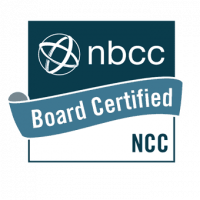Restore Your Relationship With Marriage Counseling

Free Marriage Consultation
Does your marriage need marital counseling? Nervous of whether or not this is the right path for you and your partner? Meet with a licensed therapist today and decide for yourself the next steps.
Table of Contents
Marriage counseling offers couples a powerful tool to strengthen their relationship and rekindle their love. Through regular sessions, you gain insights into your partner’s perspective and learn effective communication. Your therapist creates a safe space for both of you to express your thoughts and feelings. It’s not just about discussing challenges; it’s also about rebuilding trust, clarifying boundaries, and changing unhealthy patterns for a positive, transformative partnership.
What Percentage Of Marriages Are Saved by Counseling in Frisco, Texas?
The marriage counseling success rate is over 98%, preventing divorces for almost all couples who complete therapy. Marriage counseling’s remarkable success is rooted in several key factors: deep-seated love, unwavering commitment, and a rich shared history. Additionally, couples’ motivations to provide a stable environment for their children, preserve cherished memories, honor religious or cultural values, and manage financial concerns drive them to address relationship challenges. Through counseling, individuals find opportunities for personal growth and skill enhancement.
Why Does Marriage Counseling Work So Well?
Here are six key factors on why marriage counseling is so successful in repairing a relationship.
Love & Commitment: Deep love forms a solid foundation for couples to rebuild their relationship.
Children & Family: The well-being of children motivates couples to create a stable, nurturing home.
Shared History: Cherished memories and a long history together encourage working through challenges.
Religious & Cultural Values: Faith or cultural beliefs inspire couples to preserve their marriage as a sacred commitment.
Financial Stability: Avoiding the costly process of divorce and maintaining financial security can be a strong motivator.
Personal Growth: Marriage counseling fosters personal and relational growth, teaching vital skills and fostering deeper understanding.
Who Should You Seek Marriage Counseling?
Below are 7 key indicators that could suggest it’s time to explore couples counseling:
- Constant fighting or arguing with your partner.
- Feeling emotionally or physically disconnected from your partner.
- Losing trust in your partner.
- Contemplating separation or divorce.
- Coping with significant life changes like the birth of a child, loss of a loved one, or a job change.
- Encountering sexual problems.
- Dealing with infidelity in your relationship.
What is Marriage Counseling?
Marriage counseling, often a short-term and solution-focused therapy, generally concludes within 20 sessions, with an average of around 12 sessions. The frequency of these sessions can vary, occurring weekly or bi-weekly, determined by the initial assessment of the therapist and the couple’s objectives. The success of marriage counseling hinges on the mutual commitment of both partners to collaboratively address marital concerns and their willingness to invest effort individually and as a team.
What Problems Marriage Counseling Can Help Resolve?
Marriage counseling addresses various issues that couples might encounter. Therapists facilitate open discussions on topics such as financial management, the equitable division of household responsibilities, work-related stress, sexual intimacy, and the challenges of parenting. Counseling becomes essential in the aftermath of infidelity or to help couples overcome issues like poor communication and trust rebuilding.
Marriage counseling and couples therapy offer support and guidance for couples to:
- Nurture Post-Baby Connections: Sustaining a loving relationship while embracing the transformative journey of parenthood.
- Conquer the “Empty Nest” Challenge: Guiding couples through the emotional transitions that come with children leaving home.
- Cope with Childless Regrets: Providing a compassionate space to address the profound impact of not having children.
- Reconnect on a Deeper Level: Restoring emotional intimacy and strengthening the foundations of communication.
- Navigate Intimacy Changes: Addressing issues concerning physical closeness and nurturing a fulfilling sexual relationship.
- Make Life-Altering Decisions Together: Offering strategies to jointly tackle significant life choices.
- Overcome Betrayal, Including Infidelity: Assisting couples in healing, rebuilding trust, and rekindling friendship and mutual respect
Megan Corrieri is Frisco's Best Marriage Counselor

MS, LPCC, LPC, NCC
Therapist | Licensed Professional Clinical Counselor | Nationally Certified Counselor
As Frisco’s leading marriage therapist, I, Megan Corrieri, bring to the table more than a decade and a half of dedicated experience in the realm of marriage counseling. I take immense pride in helping couples traverse the path of healing, guiding them beyond their issues, and leading them towards the achievement of their recovery aspirations.
My approach is deeply personalized and hinges on the establishment of trust and fostering resilience and emotional intelligence. This methodology empowers me to assist you in steering through relationship issues.
Megan is fully licensed in the states of Texas, Minnesota and Florida. NorthStar Counseling & Therapy is located at 2591 Dallas Parkway STE 300 in Frisco, TX
How Marriage Counseling Works
Marriage counseling is a type of therapy that can help couples identify and address the issues that are causing conflict in their relationship. Your therapist can also teach you and your partner skills to communicate more effectively, resolve conflict in a healthy way, and build a stronger bond.
Here is a simplified sequence of steps on how marriage counseling works:
- You and your partner will meet with your therapist to discuss your relationship. Your therapist will ask you questions about your relationship history, your current challenges, and your goals for therapy.
- Your therapist will help you and your partner to identify the underlying causes of your problems. This may involve exploring your communication patterns, your attachment styles, and your individual needs and expectations.
- Your therapist will teach you and your partner skills to communicate more effectively and resolve conflict in a healthy way. These skills may include active listening, assertive communication, and compromise.
- Your therapist will help you and your partner to develop a plan to address your specific problems. This may involve setting goals, making changes to your behavior, and practicing new communication skills.
Marriage counseling can be a very effective way to improve your relationship. However, it is important to remember that it takes time and effort to make lasting changes. If you are committed to making your relationship work, marriage counseling will be a valuable tool.
Here are some specific examples of how marriage counseling can help:
- Learn to communicate more effectively: Your therapist can teach you and your partner how to communicate more openly and honestly with each other. This may involve learning how to listen to each other without judgment, how to express your needs and feelings in a clear and assertive way, and how to resolve conflict without resorting to blaming or name-calling.
- Build stronger emotional connections: Your therapist can help you and your partner to understand and express your emotions in a healthy way. This may involve learning how to be more vulnerable with each other, how to support each other through difficult times, and how to share your hopes and dreams.
- Increase trust and intimacy: Your therapist can help you and your partner to increase trust and intimacy. This may involve rebuilding trust that has been broken, learning to be more supportive and affectionate with each other, and developing a stronger sexual connection.
What Are the Goals of Marriage Counseling?
Couples seeking marriage counseling in Frisco, Texas, often come with a variety of goals in mind. Some couples may be struggling to communicate effectively, while others may be dealing with conflict resolution challenges, trust issues, or resentment. Still others may be seeking help with healing past wounds, boosting relationship satisfaction, or recovering from infidelity.
Regardless of their specific goals, couples who seek marriage counseling in Frisco, Texas, can benefit from working with a qualified therapist who can help them create a safe and supportive space to explore their issues and develop strategies for moving forward.
Here are some of the most common goals that couples pursue in marriage counseling in Frisco, Texas:
- Communicate better: Do you and your partner feel misunderstood or disconnected? Marriage counseling can teach you how to listen to each other with empathy and express yourselves clearly.
- Resolve conflict peacefully: Does your partner have different ways of dealing with conflict than you do? Marriage counseling can help you develop a shared approach to conflict resolution.
- Rebuild trust: Has infidelity, betrayal, or another hurt damaged your trust in each other? Marriage counseling can help you heal and rebuild a foundation of trust.
- Let go of resentment: Are you holding on to hurt or anger from the past? Marriage counseling can help you identify and address the root causes of resentment so you can move forward together.
- Heal from past wounds: Have you experienced trauma or other difficult life experiences that impact your relationship? Marriage counseling can help you process these experiences and develop healthy coping mechanisms.
- Improve your relationship: Do you and your partner want to create a more fulfilling life together? Marriage counseling can help you identify your shared goals and develop strategies for achieving them.
If you are considering marriage counseling in Frisco, Texas, it is important to find a therapist who is experienced in working with couples. A qualified therapist can help you and your partner define your goals, develop a treatment plan, and support you through the process of change.
How Much Does Marriage Counseling Cost?
The cost of marriage counseling is a small investment compared to the emotional and financial costs of divorce. It is often much less expensive than the cost of a divorce, especially if there are children involved. Additionally, marriage counseling can help couples avoid the emotional pain and stress of divorce, which can be invaluable.
Is online relationship therapy covered by insurance?
Regrettably, a substantial number of insurance providers tend not to include this kind of therapy in their coverage. However, don’t hesitate to reach out to your insurance provider to dive into the fine print and discover the specifics for your particular plan. Please visit our counseling fees page to get a better understanding of our sliding scale pricing.
What to Expect Your First Couples Therapy Session
Expect to fill out some paperwork and answer questions about your relationship in your first couples therapy session. Your therapist will also want to hear from each of you individually to get a better understanding of your unique perspectives.
This first session is an important opportunity to establish trust with your therapist and begin to explore the dynamics and challenges of your relationship. Together, you will develop a plan for moving forward in therapy.
What You Should Do To Prepare for Couples Counseling
Before your first couples counseling session, take some time to think about the different aspects of your relationship that you want to discuss with your therapist. This could include your identities, relationship preferences, sexual relationship, and any other challenges you are facing.
Your therapist will want to learn about your unique experiences and perspectives in order to tailor their counseling approach to your specific needs. For example, if you are struggling to communicate about your different sexual needs, your therapist may ask you questions about your sexual history and preferences in order to better understand the situation.
It’s important to remember that you and your partner have control over what you discuss in counseling and when you discuss it. However, being prepared to talk about these topics during the intake process can help your therapist to better understand your relationship and to develop an effective treatment plan.
Will We Need Individual Sessions & Couples Sessions?
Couples counseling may combine individual or family counseling sessions beyond the initial intake, depending on the couple’s needs and the therapist’s approach. Individual sessions can help the therapist gain different perspectives or break through a plateau. They are typically short-term and do not overshadow the goals of couples counseling. Before scheduling individual sessions, your therapist will discuss their limits of confidentiality with the couple.
Here are some examples of situations where a couples therapist may recommend individual sessions:
- One partner has a mental health condition, such as anxiety or depression.
- One partner has experienced trauma, such as abuse or neglect.
- One partner is struggling with addiction.
- The couple is having communication difficulties.
- The couple is struggling to connect sexually.
- The couple is considering divorce.
How To Convince Your Partner If They Aren't Open to Marriage Counseling
When your desire for marriage counseling isn’t met with the same enthusiasm from your partner, it’s essential to navigate this emotional terrain with sensitivity. Open communication is your most valuable ally here. Start by understanding your spouse’s reservations. Ask them why they might be reluctant to engage in counseling together. These conversations can unveil fears, misconceptions, or concerns they hold regarding therapy.
Commonly, people fear that marriage counseling could be a stepping stone towards divorce. Others may worry about the financial and time commitments involved, especially with hectic work schedules and family responsibilities. The idea of discussing personal matters with a stranger like a therapist might make them uncomfortable. Some might even view marriage counseling as a form of punishment.
While your partner’s reservations are valid for them, it’s crucial to remember that your needs and concerns are equally important. Finding common ground, even if it’s in the form of agreeing to explore counseling or discussing apprehensions with a potential therapist, can be a significant step forward. If you feel the need for support, beginning individual therapy and inviting your partner to join at a later stage can demonstrate that marriage counseling is a safe and collaborative journey.
Will Marriage Counselors Ever Suggest a Divorce?
Marriage counselors usually refrain from advising divorce or expressing personal opinions about your relationship. Their role is to guide you in understanding your needs, how they can be met within the relationship, and the steps needed to achieve that. They may suggest techniques for establishing healthy boundaries and promoting effective stress management within the marriage. These practices aim to create an environment where both partners can address their concerns, fostering a more harmonious relationship.
Why Would A Marriage Counselor Recommend a Divorce?
While the goal of marriage counseling is typically to improve relationships, there are situations where a counselor might recommend divorce. Despite the best efforts in both marital and individual counseling, some relationships may reach a point where ending the marriage is the most appropriate choice for the individuals involved.
Here are some key reasons why a counselor might suggest considering divorce:
- Irreparable Trust Issues: When one or both partners have deeply broken trust and reconciliation seems impossible, such as in cases of repeated infidelity.
- Safety Concerns: If there are concerns of physical or emotional abuse, and safety is at risk in the marriage.
- Consistent Unhappiness: If one or both spouses are consistently unhappy despite extensive efforts to address the issues.
- Lack of Emotional Connection: When emotional intimacy is severely lacking, leaving both partners feeling disconnected.
- Differing Life Goals: If fundamental life goals, like having children or career paths, are significantly incompatible.
- Unresolved Major Conflicts: In situations where major conflicts, such as financial disputes, remain irresolvable.
What Therapy Methods Are Used in Marriage Counseling?
Marriage counseling can be a valuable tool for couples who are struggling in their relationship. Your therapist can help you and your partner identify and address the issues that are causing conflict, and teach you skills to communicate more effectively, resolve conflict in a healthy way, and build a stronger bond.
Some common tools and therapy methods used in marriage counseling include:
- Open-ended questions: Your therapist will start by asking you and your partner open-ended questions about your relationship. This helps them to get to know you both better and to understand the challenges you are facing.
- Active listening: Your therapist will listen carefully to both of you as you share your thoughts and feelings. They will also summarize what you have said to make sure that they understand. This helps to create a safe space where both of you feel heard and respected.
- Cooperative problem-solving: Your therapist will work with you and your partner to identify the underlying causes of your problems and to develop solutions that work for both of you.
In addition to these basic tools, marriage counselors may also use a variety of therapy methods, such as:
- The Gottman Method: This method focuses on helping couples to build a strong foundation of friendship, trust, and intimacy. It also teaches couples how to communicate more effectively and how to resolve conflict in a healthy way.
- Cognitive Behavioral Therapy (CBT): CBT can help couples to identify and change negative thoughts and behaviors that are contributing to their problems. For example, CBT can help couples to identify and challenge negative thoughts about each other. It can also help couples to develop new skills for communicating and resolving conflict.
- Emotionally Focused Therapy (EFT): EFT is a type of therapy that focuses on helping couples to understand and express their emotions in a healthy way. EFT therapists believe that when couples are able to connect with each other emotionally, they are better able to communicate and resolve conflict.
- Experiential Therapy: Experiential therapy is a type of therapy that focuses on helping couples to understand and change their relationship patterns. This may involve role-playing exercises or other activities that help couples to see their relationship in a new light.
- Imago Therapy: Imago Therapy is a type of therapy that focuses on helping couples to understand and heal from childhood wounds. Imago therapists believe that these wounds can often lead to problems in adult relationships.
The specific tools and therapy methods that your therapist will use in your marriage counseling sessions will depend on your individual needs and goals. However, it should be noted that all of these methods are designed to help you and your partner build a stronger and more fulfilling relationship.
Why The Gottman Method Is So Popular in Marriage Counseling
The Gottman Method is a research-based approach to marriage counseling developed by Drs. John and Julie Gottmanfn2. This method emphasizes building a strong foundation of friendship and intimacy, improving communication and conflict resolution skills, and creating shared meaning in the relationship.
The Gottman Method uses specific interventions and exercises to help couples improve their relationship, and is known for its effectiveness in helping couples repair and strengthen their connection. The therapy is typically structured, goal-oriented, and focuses on developing practical skills that couples can use in their daily lives.
The Gottman Method is based on the following pillars of therapy:
- Building a strong friendship: Couples are encouraged to build a foundation of mutual respect, fondness, and admiration for each other, and to regularly engage in activities that strengthen their friendship.
- Enhancing love maps: This involves understanding each other’s internal world, including their thoughts, feelings, and values, and developing a deep knowledge of each other.
- Sharing fondness and admiration: Partners are encouraged to express appreciation, affection, and gratitude towards each other, and to focus on positive aspects of the relationship.
- Managing conflict: This method focuses heavily on providing tools and techniques for managing conflict in a constructive way, and emphasizes the importance of effective communication, active listening, and compromise.
- Building a positive perspective: Couples are encouraged to focus on the positive aspects of their relationship, rather than dwelling on negative experiences or past hurts.
- Creating shared meaning: Partners are encouraged to develop shared goals, values, and rituals, and to work towards a sense of shared purpose and meaning in their lives together.
The Gottman Method is very effective in helping couples build a strong, healthy, and fulfilling relationship through improving communication, building trust, and enhancing emotional connection.
What Cognitive Behaviorial Techniques Are Used in Marital Counseling?
Cognitive behavioral therapy (CBT) is a type of therapy that focuses on helping people identify and change their negative thought patterns and behaviors. CBT can be used to help couples improve their communication, resolve conflict, and build a stronger relationship.
Some of the CBT techniques that are commonly used in marital counseling include:
- Cognitive restructuring: This technique helps couples to identify and challenge negative thoughts and beliefs. For example, a couple might learn to replace the thought “My partner doesn’t love me” with the more realistic thought “My partner has been stressed lately and hasn’t been as affectionate as usual.”
- Behavioral experimentation: This technique helps couples to try new behaviors and see how they work. For example, a couple might agree to schedule a weekly date night or to communicate their needs to each other more directly.
- Communication skills training: This technique helps couples to learn how to communicate more effectively with each other. This includes learning how to listen to each other, express their needs and feelings in a clear and assertive way, and resolve conflict without arguing.
- Problem-solving skills training: This technique helps couples to develop strategies for resolving their problems in a constructive way. This includes learning how to identify the root cause of the problem, brainstorm solutions, and choose a solution that works for both partners.
CBT can be a very effective way to help couples improve their relationship. However, it is important to note that CBT is not a quick fix. It takes time and effort for couples to learn and implement new skills.
Real Life Examples of How NorthStar Counseling & Therapy Uses Use CBT In Marital Counseling:
As a therapist, I would ask the couple for specific examples of times when they felt criticized by their partner. I would then help them to challenge these thoughts by asking them questions such as:
- Is there any other way to interpret this situation?
- What specific evidence do you have to support your thoughts?
- What evidence do you have that contradicts this thought?
- How would you feel if the situation was actually this?
I would also help the couple to develop more realistic and helpful thoughts about their partner. For example, the couple might decide to replace the thought “My partner is always criticizing me” with the more realistic thought “My partner sometimes criticizes me, but they also love and support me.”
Behavioral experimentation:
I would ask the couple to agree to try having at least one date night a week for the next month. I would also help them to set realistic goals and to track their progress.
I would also provide support and encouragement as the couple tries new behaviors. For example, I might remind them that it is normal to feel uncomfortable or awkward when trying something new. I might also suggest that they focus on enjoying each other’s company and that they don’t need to have sex every time they have a date night.
Communication skills training:
I would teach the couple how to use active listening skills and how to express their needs and feelings in a clear and assertive way. Active listening skills include paying attention to what your partner is saying, reflecting back what you heard, and asking clarifying questions.
I would also help the couple to identify and avoid common communication traps. For example, I would teach them how to avoid using blame, criticism, and sarcasm. I would also teach them how to avoid using generalizations and absolutes.
Problem-solving skills training:
For a couple experiencing financial hardships, I would work with the couple to develop a budget and to create a plan for paying off their debt. I would also help the couple to communicate effectively about their financial goals and priorities.
I would also help the couple to identify and challenge any negative thoughts or beliefs that they have about money. For example, if one partner believes that they are bad at managing money, I would help them to challenge this belief by asking them to identify evidence that supports and contradicts it. Then together we can work on the behaviors that led them to the mismanagement and communication break down.
How Therapists Use Emotionally Focused Therapy in Marriage Counseling
Emotionally focused therapy (EFT) is a type of couples therapy that focuses on helping couples identify and express their emotions in a healthy way. EFT therapists believe that by understanding and managing their emotions, couples can improve their communication, resolve conflict, and build a stronger relationship.
Emotionally Focused Therapy helps therapists to:
- Identify and understand their own emotions, as well as the emotions of their partner.
- Express their emotions in a clear and direct way, without being judgmental or accusatory.
- Listen to and understand their partner’s emotions with empathy.
- Develop new patterns of communication and interaction that are more supportive and loving.
What problems EFT will solve for couples:
- Communication problems
- Conflict resolution
- Lack of Intimacy
- Trust issues
- Attachment issues
- Infidelity
- Divorce
How EFT can help couples:
- EFT can help couples to identify and understand the root causes of their conflicts.
- EFT can teach couples how to communicate more effectively and resolve conflict in a healthy way.
- EFT can help couples to build a stronger bond and a more secure relationship.
Experiential Therapy for Marriage Counseling
This approach focuses on experiential activities to uncover underlying emotions that may be preventing communication and understanding. Couples are invited to explore the relationship through role-playing, art, music and storytelling in order to better understand each other.
The counselor will implement supportive strategies. The therapist will help couples identify patterns of behavior that are not successful for the relationship and assist in building new strategies to bring about change.
How Imago Therapy Used in Marriage Counseling
Imago therapy is a method of marriage counseling which emphasizes understanding each partner’s needs and fostering empathy between partners. When this approach is used, the counselor will help the couple identify, talk through, and address unmet emotional needs. By doing this it create a more fulfilling relationship.
There are three steps to this approach of imago therapy.
- Mirroring: The couple is encouraged to accurately reflect back their partner’s feelings and emotions in order to better understand them and their needs.
- Validation: Partners are invited to validate each other, recognizing each other’s importance and experiences without judgment.
- Expression:. Partners are asked to express and share their feelings, thoughts, and needs in a respectful manner.
Five Major Benefits of Marriage Counseling
With marriage counseling, you will be able to identify and rectify patterns of unhealthy behavior like infidelity or emotional neglect. With your marriage therapist, you and your partner can safely explore and address the challenges that are blocking the growth of your loving relationship.
This is particularly why so many couples today choose to get pre-marital counseling prior to marriage. Instead of attempting to repair an inadequately built foundation, couples today are laying a robust and strong foundation from the very beginning with pre-marriage counseling. The five important benefits to marriage counseling are:
- Communicate better: Your therapist will teach you how to express your feelings and needs in a way that your partner can understand. This can help you resolve conflicts more easily and build a stronger connection.
- Understand each other better: Marriage counseling helps you to see things from your partner’s perspective and to appreciate their unique needs and wants. This can lead to a greater empathy and compassion for your partner.
- Be more supportive of each other: Couples therapy will provide you with the tools and skills you need to support each other through tough times. This can help to strengthen your bond and make your relationship more resilient.
- Resolve conflict more constructively: During therapy sessions, with the help of your therapist, you will learn how to fight fair and to work together to find solutions to your problems.
- Forge a deeper bond: When you and your partner can communicate and understand each other on a deeper level, your commitment to your relationship will naturally strengthen. Marriage counseling can help you develop the tools and skills you need to nurture your love and build a lasting partnership that is truly unbreakable.
Is Marriage Counseling Really Worth It?
Committing to your marriage with counseling is a big step towards building a stronger, healthier, and more fulfilling relationship. It may seem scary at first, but a licensed therapist can give you the tools and support you need to overcome your challenges and connect with your partner on a deeper level.
By choosing to invest in marriage counseling, you’re showing that you’re committed to your relationship and you are willing to work through your problems together. With patience, effort, and honesty, both with yourself and your partner and under the guidance of a good therapist, you can learn the communication skills, conflict resolution strategies, and emotional regulation techniques you need to thrive as a couple.

Take the first step towards a healthier and more fulfilling relationship by contacting us today for a free marriage consultation. Together, we can help you build a stronger and more satisfying partnership.”
Sources:
- International Centre for Excellence in Emotionally Focused Therapy (ICEEFT). (2023). Emotionally focused therapy.
- Gottman, J. M., & Gottman, J. S. (2008). The Gottman method: A guide to relationship success. W. W. Norton & Company.







